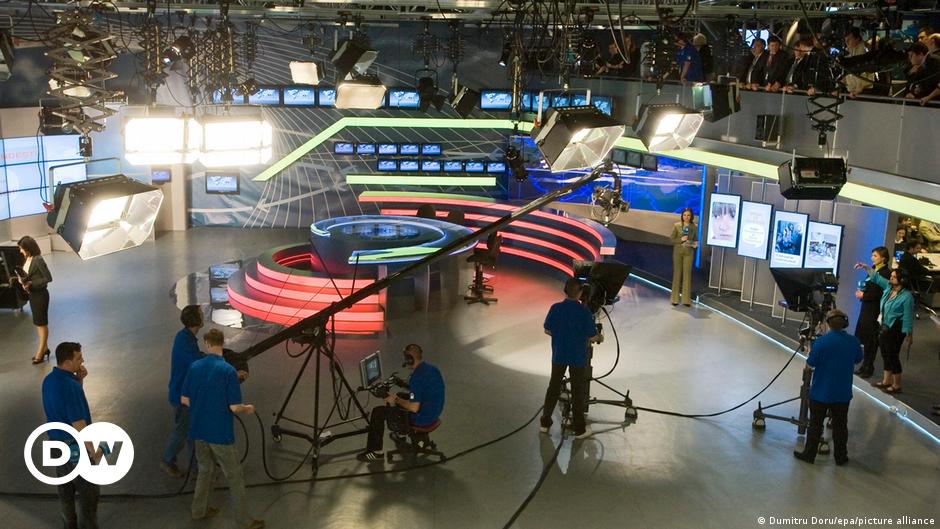
Authorities in Moldova said they had suspended the broadcasting licenses of six television channels due to “disinformation”.
The decision to revoke licenses was announced by Moldova’s Committee for Exceptional Cases, which was established after Moscow’s invasion of Ukraine.
Moldovan President Maia Sandu called the suspension “an important step to prevent attempts to destabilize” the country.
“We cannot accept that in this difficult period, the security of the state and the peaceful life of citizens are endangered by fugitives who only want one thing: to escape justice,” she said.
Why were the channels suspended?
The commission said that the Audiovisual Council of Moldova found “a lack of correct information in coverage of national events, but also of the war in Ukraine”.
It said the suspension was intended to “prevent risks of misinformation or attempts to manipulate public opinion”.
The channels whose licenses were revoked are Primul, RTR Moldova, Accent TV, NTV Moldova, TV6 and Orhei TV.
Four of the six suspended channels regularly rebroadcast Russian channels banned by the Council of Europe for “continuous and coordinated disinformation and acts of war propaganda”.
Some of the channels are owned by people close to the fugitive oligarch Ilan Shor, the leader of the Shur party who in recent months has organized major protests against Moldova’s pro-Western government.
Interactions
TV6 called the comment “completely baseless” and “an unprecedented attack on freedom of expression, freedom of editorial (and) freedom of journalists”.
Russian Foreign Ministry spokeswoman Maria Zakharova called the move “a cynical violation of the rights of national minorities.”
It said Moldova was “intentionally depriving millions of its Russian-speaking population of the country’s last sources of news content in their preferred language,” adding: “We consider this ban an unprecedented act of political censorship, an abuse of the principle of media pluralism, and a flagrant violation of the right to free access to the information “.
In Russia, journalists covering the conflict in Ukraine must describe Russia’s war against Ukraine as a “special military operation”.
sdi/ar (AP, AFP)




More Stories
Journalists convicted in Hong Kong sedition case
Stand News: Hong Kong journalists convicted of sedition in case critics say highlights erosion of press freedom
Shark decapitates teen off Jamaica coast